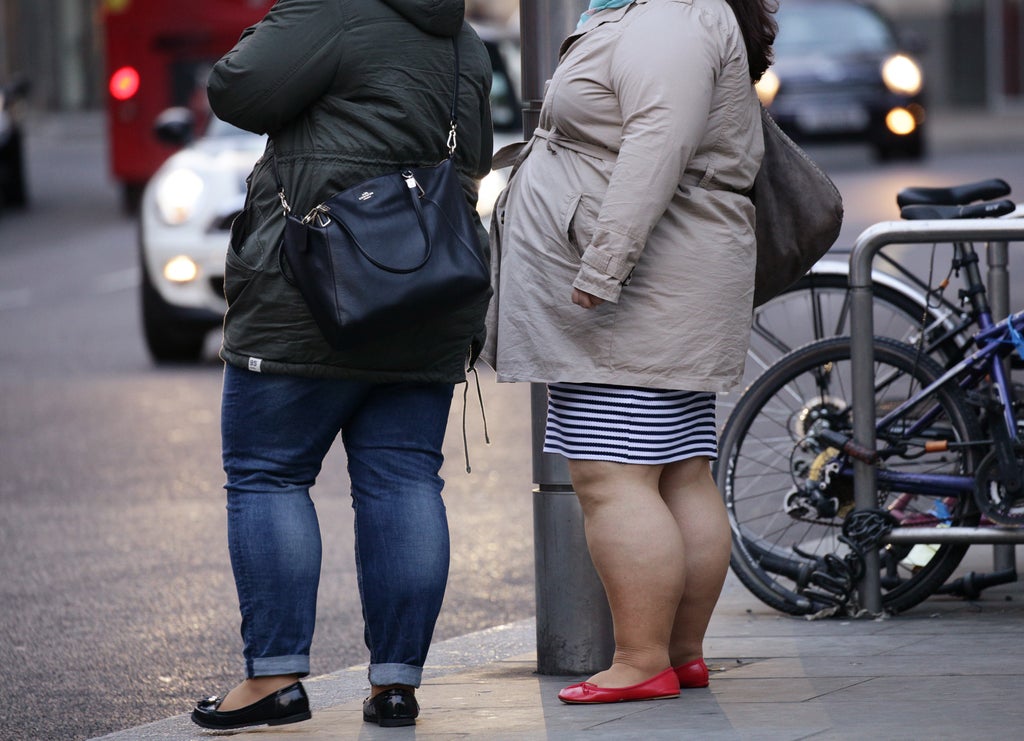
Only a minority of obese people in England are referred on the NHS to clubs like Slimming World, research suggests.
In 2014, the National Institute for Health and Care Excellence (Nice) issued updated guidance saying people with a body mass index (BMI) of 30 or more could benefit from a GP referral to weight-loss programmes.
It added that “where there is capacity”, those who are overweight (with a BMI of 25 or more, or lower in black and minority ethnic groups) should not have their access restricted.
It also said there should be no upper BMI or upper age limit for a referral to the programmes, which can include those run by the NHS or Weight Watchers.
A study presented at the European Congress on Obesity in Maastricht has found that just 3% of adults with a recording of overweight or obesity in primary care in England have been referred to weight management programmes by their GP.
Dr Karen Coulman and colleagues at the University of Bristol used anonymised primary care electronic health records to work out how many adults who were overweight or obese received referrals to weight management programmes.
Some 31% (1,811,587) of the adults whose records were studied were overweight or obese between January 2007 – when guidance on weight management programmes was first published – and June 2020.
This is half the 64% figure reported in the Health Survey for England, suggesting weight issues are under-recorded in GP surgeries.
Weight management programmes are known to be effective
Men had 31% lower odds of receiving a referral than women, and people aged 18-24 had 54% lower odds than those aged 45-54.
Black people had 23% greater odds of being referred than those who were white, according to the study,
The study found that adults diagnosed with being obese or overweight in recent years were more likely to be referred.
The odds of being referred were 2.7 times higher for those diagnosed in 2019-20 compared with those diagnosed in 2007.
A higher BMI also meant people were more likely to be referred. Those with a BMI over 40 had more than six times greater odds of being referred than those at 25-30.
Adults living in the most deprived areas had 20% greater odds of being referred than those in the least deprived areas, which could reflect higher obesity rates in these areas, the study suggests.
Each individual is different and so requires tailored treatment
The odds of referral were highest in the West Midlands, where people were more than twice as likely to be referred than those in the North West.
Dr Coulman said: “Weight management programmes are known to be effective and national guidance states that anyone with overweight or obesity is eligible to be referred to one.”
The new study has not been peer-reviewed or published in a medical journal.
NHS England said a new NHS weight management programme introduced last June had seen thousands referred.
Professor Jonathan Valabhji, national clinical director for diabetes and obesity, said: “The NHS Digital Weight Management Programme has seen over 100,000 people referred in by GPs since July 2021, a significant milestone for the 12-week behavioural scheme.
“Each individual is different and so requires tailored treatment.
“The programme provides diet and lifestyle plans, physical activity initiatives, in-app support and educational resources such as blogs and recipes, all of which will be matched to the person’s characteristics, whereby additional in-person support can be provided.”







